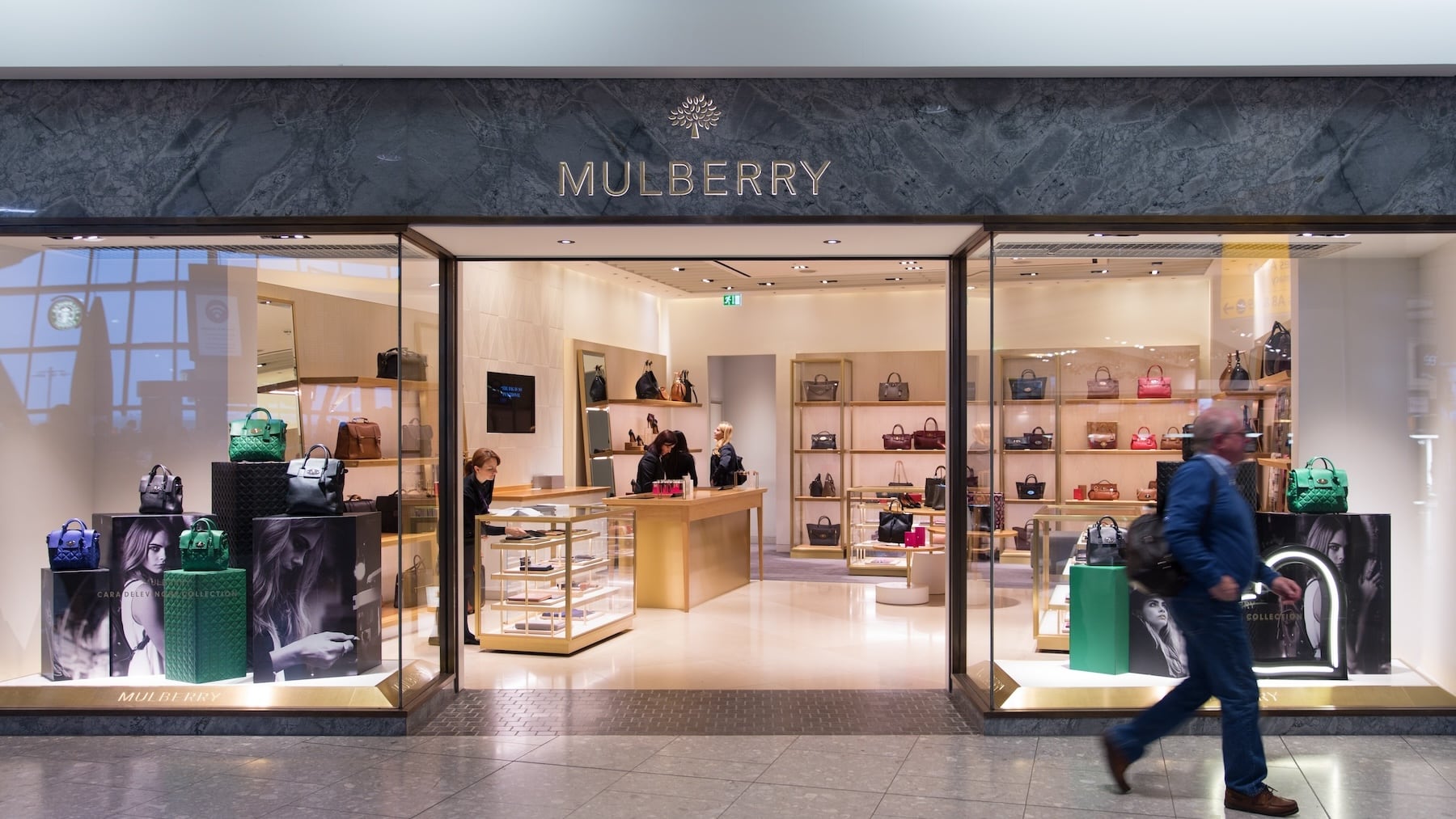
Struggling British handbag brand Mulberry is planning to cut around a quarter of its corporate roles, BoF has learned, as new chief executive Andrea Baldo seeks to return the brand to profitability after fending off a takeover bid from Mike Ashley’s Frasers Group.
The layoffs, announced during an internal town hall Thursday, will affect roughly 85 positions globally. The job cuts are focused on the company’s 350-person strong corporate team, and won’t affect its factories, retail stores or warehouses. They represent an initial step in a broader strategic reset that’s expected to be announced before the end of the year.
“The strategy for the business is clearly not delivering,” Baldo said in an emailed statement. “[It is] essential that our teams are set up for success and are able to act with agility and pace so that we can restore Mulberry to profitability.”
Since taking over from long-time CEO Thierry Andretta in early September, Baldo has faced a baptism of fire. While the former Ganni CEO was brought in to help turnaround the bag-maker’s flagging fortunes, within weeks of his appointment Frasers Group — Mulberry’s second-largest shareholder — made a play for the business.
The British group has emerged as an aggressive and ruthless activist force in UK retail since the pandemic. For instance, it put luxury e-commerce site Matchesfashion into administration earlier this year just months after acquiring it. Frasers made a series of offers for Mulberry over the last month, culminating in a bid earlier this week that valued the bag brand at £111 million ($144 million).
Mulberry’s board rejected the offer as “untenable,” pointing to a lack of support from its biggest shareholder, an investment vehicle owned by Singaporean billionaire Ong Beng Seng and his wife Christina. The firm’s holding of 56 percent means it can block any deal.
Frasers Group ultimately walked away from its takeover attempt on Wednesday, with a barbed parting shot: “Frasers continues to believe that market headwinds, and a clear lack of commercial plan, place the company in a very difficult financial position,” it said in a statement to investors. While the group said it remained a “long-term support” of the brand, it called on Mulberry to present a “credible plan in the near term” and requested a seat on the company’s board.
In his emailed statement, Baldo said the company has already taken “swift and decisive action to put the group on a firmer financial footing.” It moved to raise nearly £11 million through a share placing last month and has taken steps to reduce inventory and streamline its operating costs. Still, Baldo faces a long path ahead to reposition the brand for growth in a challenging market.
Mulberry enjoyed a buzzy millennial moment in the late 2000s and early twenty-teens, with hit bags like the slouchy Alexa satchel (named after British it-girl Alexa Chung) driving sales. But it’s spent the last decade in decline, struggling to remain relevant or compete on the global market, especially in the wake of Brexit. The company swung to an annual pre-tax loss of £34 million in its last fiscal year as a broader luxury downturn pressured sales. Its shares have fallen nearly 40 percent in the last 12 months.
Baldo, who presided over a period of international expansion and growth at contemporary Danish label Ganni is expected to focus on restoring brand heat, while leaning into Mulberry’s heritage and contemporary price point.



